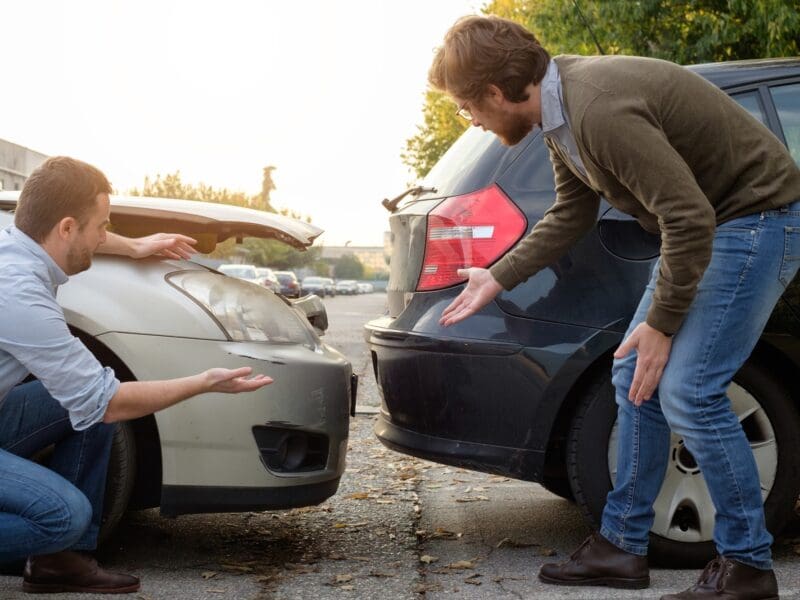
How to Decide Whether to Buy a Salvage Car or Not?
Are you tempted by the appeal of owning a car at a bargain price? Salvage cars can be a tempting option, but before you dive headlong into the world of salvage vehicles, it’s essential to tread with caution and make an informed decision. Deciding whether to buy a salvage car or not is a critical choice that can save you money or turn into a costly mistake.
In this article, we will break down the factors you need to consider, the risks involved, and the steps to help you arrive at a well-informed verdict. Let’s embark on this journey together to uncover the truth behind salvage car purchases!
Salvage titles are special designations given to cars that have been severely damaged or deemed uneconomical to repair by insurance companies. When a vehicle is in a major accident, flooded, or stolen and later recovered, it may receive a salvage title. This means the car has significant damage and needs extensive repairs. Buying a salvage car can be risky, so it’s crucial to be aware of the title’s implications and potential consequences.
In case, if you’re a salvage car owner, we would suggest you to sell to Cash for cars Sydney company instead of private buyer. As salvage cars are not roadworthy even if repaired, and it can cause problems in future, and car buying companies are licensed to buy and dispose of them.
Considering a Salvage Car: A Sensible Choice?
Looking for a car without breaking the bank? Salvage cars might just be the answer you seek! Here’s why you should consider them:
Lower Purchase Price:
Salvage cars are typically sold at significantly lower prices compared to their non-damaged counterparts. If you’re on a tight budget, this could be the perfect opportunity to get behind the wheel of a vehicle you otherwise couldn’t afford.
Potential for Savings on Repairs:
Sure, salvage cars need fixing, but if you’re handy with repairs or know a reliable mechanic, you can save big on fixing the damages. It’s a chance to turn a bargain purchase into a fully functioning ride.
Access to High-End or Rare Models:
Dreaming of owning a luxury or rare car? Salvage cars often include high-end models or limited editions, which may be hard to find elsewhere, even if they need some TLC.
Parts Availability for DIY Enthusiasts:
For car enthusiasts who love DIY projects, salvage cars offer a treasure trove of spare parts. You can find components to upgrade or repair your current vehicle at a fraction of the cost of buying new parts.
Remember, while buying a salvage car can be a money-saving venture, it requires thorough research and mechanical know-how to ensure a wise investment.
Considering a Salvage Car: Is It Worth the Risk?
Thinking about buying a salvage car? It’s a decision that comes with both pros and cons. Let’s explore the reasons why people consider purchasing salvage cars.
Advantages of Buying a Salvage Car:
Disadvantages of Buying a Salvage Car:
However, if you’re a salvage car owner then consider selling it in an efficient way to car buying companies who dedicatedly dispose of the in an environmentally-friendly way like car removal and do proper car recycling of salvage cars.
Steps to Make an Informed Decision
Thinking about buying a salvage car? Take these essential steps to ensure you make a well-informed choice:
Research the Vehicle’s History
Get a Professional Inspection
Consider the Extent of Damage
Calculate Repair Costs
Research Insurance and Financing Options
By following these steps diligently, you’ll be better equipped to make an informed decision about buying a salvage car and potentially save yourself from future headaches and financial burdens.
When buying a salvage car, there are essential legal aspects you must be aware of to ensure a smooth and lawful process. Let’s take a quick look at these considerations:
Title Transfer and Registration:
State-Specific Regulations:
Emissions and Inspection Requirements:
Remember, adhering to legal considerations is essential for your safety and the lawful operation of your salvage car. Always stay informed and follow the rules to enjoy your salvaged vehicle responsibly.
Deciding whether to buy a salvage car requires careful consideration. Here’s what you need to do:
Set a Budget: Determine how much you can afford to spend on the purchase and potential repairs. Be realistic and consider the total cost, including insurance and other expenses.
Weigh the Risk and Reward: Evaluate the benefits of getting a lower-priced car against the risks of potential issues and safety concerns. Assess whether the savings outweigh the uncertainties.
Consider Your Mechanical Skills: If you have experience with car repairs or know someone who does, a salvage car might be a viable option. Otherwise, be prepared for additional expenses for professional repairs.
Consult Trusted Individuals or Mechanics: Seek advice from friends, family, or a trusted mechanic who can offer insights into the specific salvage car you’re considering. Their expertise can help you make an informed decision.
Remember, a salvage car can be a great deal if you do your homework and proceed with caution.
In conclusion, buying a salvage car requires careful thought and thorough research. While the prospect of saving money may be appealing, it’s crucial to weigh the risks and benefits. Get a professional inspection, know the car’s history, and consider repair costs and legal requirements. By making a well-informed decision, you can either find a great deal or avoid potential headaches down the road. Happy car hunting!







